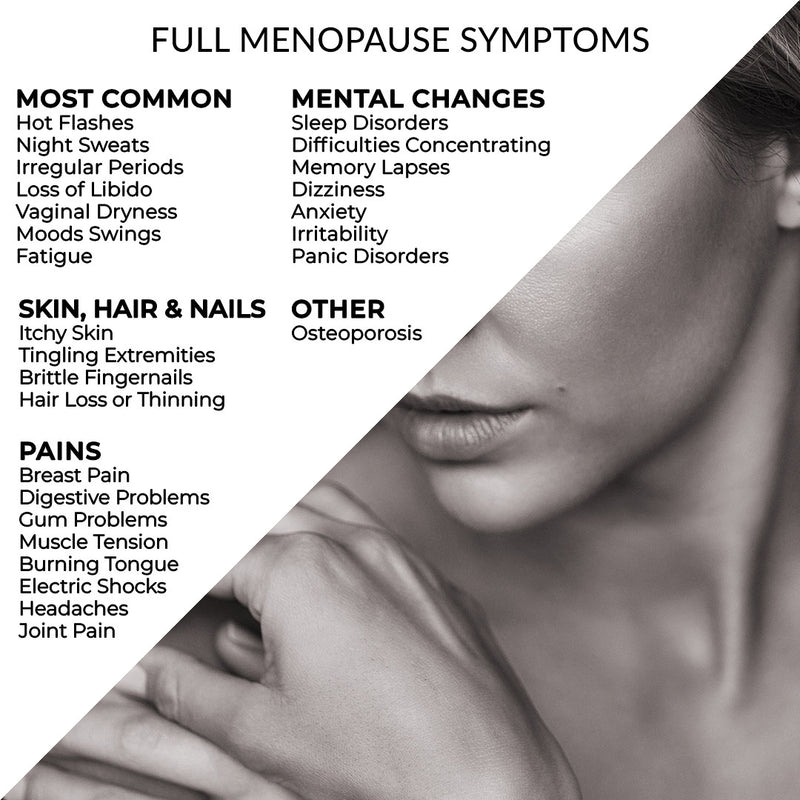
WHAT IS MENOPAUSE
Menopause is a normal aspect of aging for all women. As menopause approaches, the ovaries gradually decrease their output of the sex hormones progesterone and estrogen.
Menopause is not a disease or an ailment; it simply signifies the end of female sterility and menstruation.
According to statistics reported by the NHS, it is understood that the average age of the menopause is somewhere between 45 and 55, and for the UK the average age is 51.
For women under the age of 40, it is said that 1 in 100 will experience menopause (referred to as premature menopause or premature ovarian insufficiency).
A CHANGE... NORMAL NOT THE END
Hot Flashes, Mood Swings, Insomnia....?
OUR BLENDS TO EASE...



For many women menopause can feel like a death senstence...
WE WANT YOU TO FEEL EMPOWERED
Since experiencing the symptoms can feel truly alien, causing the body or the mind to act so differently to 'what used to be normal' it is not uncommon to feel beside yourself or like you are losing touch with who you used to be and many may have levels of anxiousness and shame about the menopause itself. Predominantly in westernised cultures celebrating youth as the beauty norm menopause can feel like a sentence and an end to one's attractiveness and this can be made worse by a sense of isolation with menopause traditionally shrouded in secrecy as a rarely talked about taboo subject.
However as Shhh... and many other communities of womanhood, the new movement in the media as well as government initiatives contribute to opening dialogues about the menopause we can grow from shared experience and learning from cultural experiences around the world to reach a point where menopause is embraced as a liberating new life stage and an opportunity to understand our bodies as well as improve our healing regimens of wellbeing and self care.
IT'S WHY WE CREATED SHHH...
We want women to know you are not alone.
We will all go through this and sharing knowledge and solutions is just way in which we can support each other.















